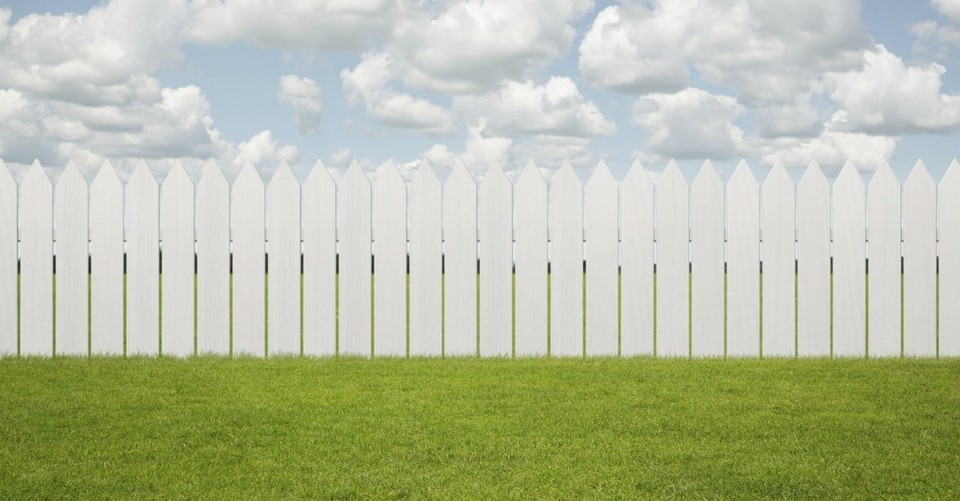Paper Fences: The Boundaries We Fail to Set in Marriage

Editor's Note: Do you need sound, Biblically-based advice on an issue in your marriage or family? Dr. David Hawkins, director of the Marriage Recovery Center, will address questions from Crosswalk readers in his weekly column. Submit your question to drdavid@marriagerecoverycenter.com
Boundaries. Fences. Partitions. They perform a vital role in our lives.
I have the benefit of working in an office. Many visitors to "my space" tell me it feels like a living room. "Good thing," I reply, "because this is where I live much of my life." The walls of my office allow me to define how I am different from my associates, whose offices are down the hall from mine. My walls, for example, are adorned with pictures of my family, the Seattle Seahawks (Yes, we're going to the Super Bowl) and my Pug, Stewart. I have pictures of my youngest son, Tyson, and me during a recent fishing trip to Alaska. You can tell a lot about me by visiting my work space.
Besides defining us, walls keep others out of our space when needed. I can close the door to my office; workers can position their desks in such a way as to suggest, "Knock before you enter." Walls are very important boundaries, much like fences around yards define personal space and protect turf.
Personal boundaries are much like walls and fences. Personal preferences, feelings and thoughts are all examples of boundaries.
When my oldest son, Joshua, was sixteen, he said he needed to talk to me. He approached me quite firmly one evening.
"Dad. You've taught me well. I know exactly what you think. I know about your spiritual beliefs and values about things. But, I am not exactly like you. I need to decide what I believe. It won't be the same as you because I am different. So, I don't want you trying to make me just like you. I'm different."
I stood looking at him, amazed at his maturity. While I would not like all of his decisions in the next several years, he was actively discovering and defining his identity.
We should not be surprised that boundaries are an important topic since they were ordained by God. God established the universe with a certain order and specific boundaries. We read, in the story of creation, that "the earth was formless and empty, darkness was over the face of the deep." (Genesis 1: 2) Then something wonderful happened. God created — and He used boundaries to create. "Let there be an expanse between the waters to separate water from water." (Genesis 1: 6) God took out His giant color crayon and made definitions between the land, water and heavens.
God created and created. Different animals, different plants and vegetation, different celestial bodies. Then He created His masterpiece. He created man, and ultimately someone quite different from man — woman.
God created natural boundaries between the land and the water so the earth could function in a manner that supports life. We need to follow His example and establish emotional, spiritual and physical boundaries so our lives can function in a healthy way. These relationship boundaries determine what things are and are not our responsibility. Failing to understanding this principle — what is and what is not our responsibility, and living accordingly — is a critical mistake many couples make. Allow me to illustrate.
Kate was a devout Christian woman in her fifties who came to see me for symptoms of depression. Dressed perfectly in matching blouse and skirt, her gray hair neatly styled, she had been struggling with low energy and a lack of enthusiasm for several years. She told me that her friends thought of her as "sweet as honey," but Kate wondered if any of them really knew her. Odd as it may seem, Kate's troubles stemmed from her obsession with not hurting anyone's feelings.
"It's the way I was raised," she said. "My mom taught me never to talk back to anyone. She said I should always put other's needs above my own. That's the way she lived her life."
Kate offered an occasional smile when referring to herself as a "proud Southern woman. You never put yourself first, and you always make others comfortable before yourself. It's the way of the Bible."
Kate was married to a "strong, independent man, who likes his control." Now retired, Gene had been a successful businessman, and he demanded a great deal from Kate while giving little in return.
For years she had enjoyed the benefits of his six-figure salary. She liked entertaining in the spacious, Mediterranean-style home on the hill overlooking the city. Yet, Kate wondered why she was irritable. She wondered why her husband's dominance made her unsure of herself. She gave numerous examples of how he told her what to do, how to think, and even how to feel. Yet, surprisingly, not until recently did she recognize this as inappropriate — even as it was taking its toll on her self-esteem.
Kate loved her husband and was used to deferring to him. It was difficult for her to see how his violation of her personal boundaries was having a potent impact on her. In counseling she learned that his violation of her personal boundaries caused her to be unsure of her own thoughts, unaware of her own feelings, insecure about her decisions. Over the years she had even grown wary of making decisions on her own, fearing his ridicule. Together we explored the notion of healthy boundaries in marriage.
Healthy boundaries help you:
• Know what you think
• Be able to say yes to good things and no to bad things
• Know how to make healthy decisions
• Know how our thoughts are different from others' points of view
• Take responsibility for our actions, and not the actions of others
• Know how to set limits on others' intrusions into our lives
• Respect others' ability to say yes and no, and honor their decisions
As you can see, setting healthy boundaries can bring great freedom, especially in marriage. In the following months in counseling, Kate learned to calmly tell her husband about how her feelings and thoughts differed from his. She learned that her husband wasn't the only one who was demanding of her — she expected a great deal of herself, regardless of how she felt. In the past, she had failed to set good boundaries, taking unnecessary responsibility for accommodating others' thoughts and feelings, even in her friendships.
While there have been some tense times in their marriage, Kate and Gene are doing well. They still subscribe to the Biblical mandate to "become one flesh," but now realize it doesn't mean being identical twins with identical thoughts. They have discovered that sharing differences, with respect, can bring a new vitality to their marriage.
How are you doing with boundaries in your marriage? Are you living with paper fences, allowing others to tell you what you think, how to behave and what to feel? Consider lovingly sharing with them the concept of personal boundaries, and learn to enjoy the excitement that differences can bring to marriage.
This article was adapted from Nine Critical Mistakes Most Couples Make (Harvest House Publishers, 2005). This article was originally published in February of 2006 and is sixth in a series on nine mistakes most couples make. Read part 5: Has the Spark Faded from Your Marriage?

Originally published December 20, 2011.






